Elvis and the enjoyably silly The One That Got Away are easier calls to make than The Black Phone
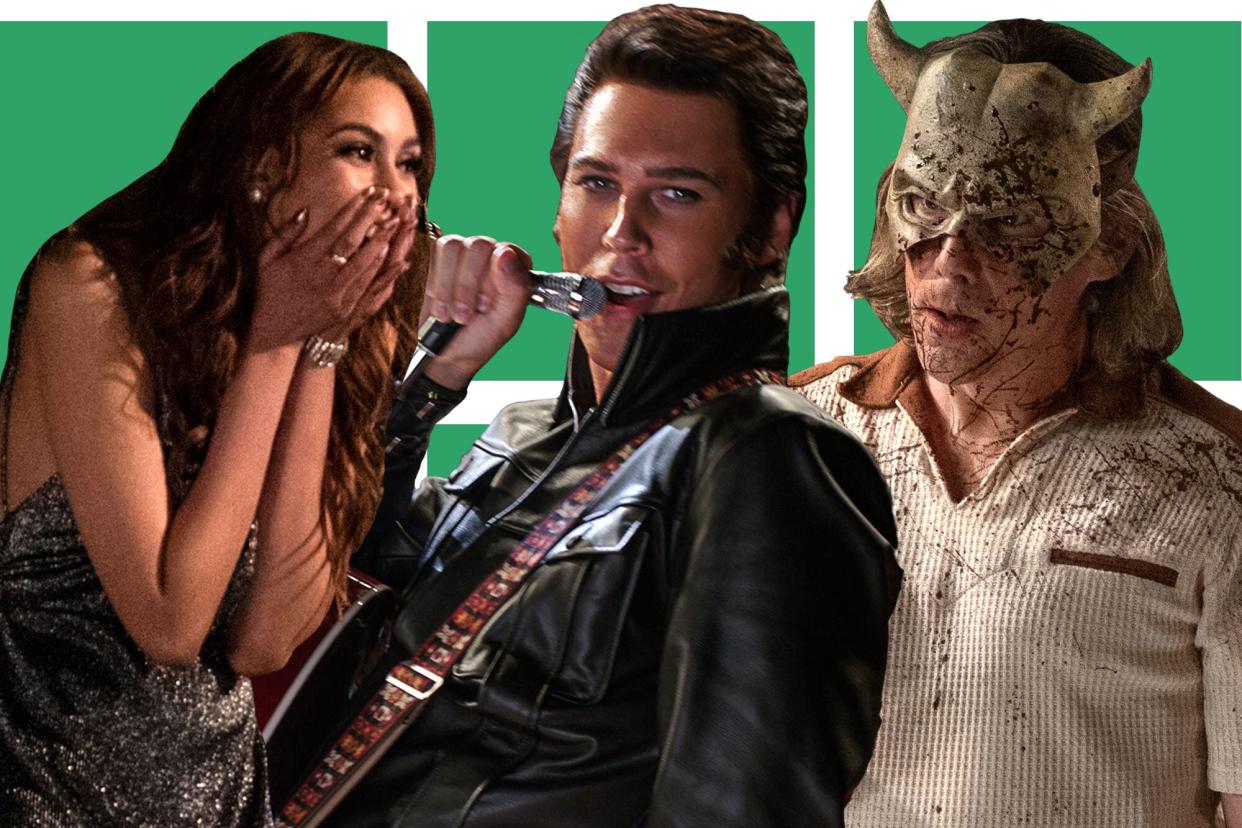
- Oops!Something went wrong.Please try again later.
- Oops!Something went wrong.Please try again later.
- Oops!Something went wrong.Please try again later.
Amazon Prime; Warner Bros. Pictures; Universal Pictures
Each Friday, our critics provide a few quick-hit reviews of the titles that have them giddy and groaning — or, to put it another way, the Musts & Misses of the week.
Elvis
In theaters now
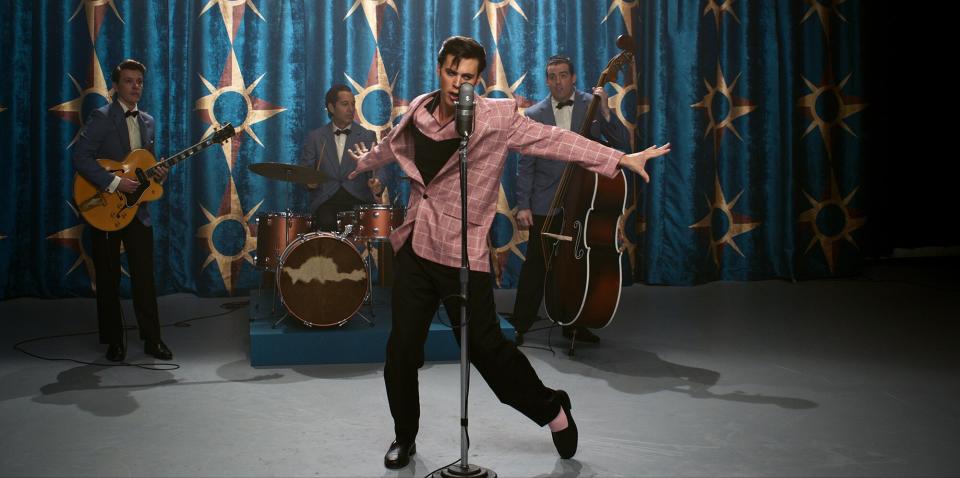
Warner Bros. Pictures Austin Butler in Baz Luhrmann's 'Elvis.'
"It was the greatest carnival attraction I'd ever seen," murmurs narrating uber-manager-to-be Colonel Tom Parker (a stunty, half-successful Tom Hanks), and a thesis snaps into place, one that director Baz Luhrmann, himself an impresario, develops in a screenplay credited to him and three other writers: This is story about salesmanship, onstage and off.
Elvis crystallizes as a media-minded showdown between Parker's product manager and an increasingly willful and visionary artist. Not a perfect lookalike (and that's fine), Austin Butler does extremely well by the music and stage moves, but he's even more compelling during Presley's post-Army Hollywood years, presented as dissatisfied ones. Elvis has an extended centerpiece that you can't quite believe arrives in a major studio movie: a behind-the-scenes exfoliation of Presley's landmark 1968 TV comeback special, during which Parker's dreams of wholesome Christmas entertainment collide with an increasingly politicized singer, shaken by the recent assassinations of Robert Kennedy and Rev. Martin Luther King Jr. ("He's not even wearing the sweater!" a panicky executive barks in the control room, confronted by Butler's leather-clad, gospel-belting Presley.)
As fun as Elvis often is, it scores some remarkably sharp points, particularly regarding Presley's unfaked love of Black musicians, and the appropriations that fueled his crossover success. Of the many biopics to enshrine the King (and Elvis eclipses them all), none has featured a triple split-screen montage charting the performance of a single song back to its blues-shack roots. "Too many people are making too much money to put you in jail," a shrewd B.B. King (Waves' Kelvin Harrison Jr.) tells Presley at one of his low points; the line is scalding.
For a filmmaker sometimes criticized for skimming the surface, Luhrmann uses the material to go as deep as he does wide. Sometimes Elvis feels like a lost Oliver Stone film from his daring 1990s heyday: a big-canvas exploration of debauched American appetites. Fittingly, the Las Vegas years slacken a bit, televisions getting bulleted and pills chased. Still, Luhrmann makes room for Nixonian paranoia, especially in one hushed conversation with estranged wife Priscilla (Olivia DeJonge). "I never made a classic film I could be proud of," Elvis, a James Dean fan, tells her. Fans of Blue Hawaii will wince, but something equally rare has come to pass — a portrait of a serious man trapped in an unserious life. Grade: A– —Joshua Rothkopf
Read our full review of Elvis here
The Black Phone
In theaters now
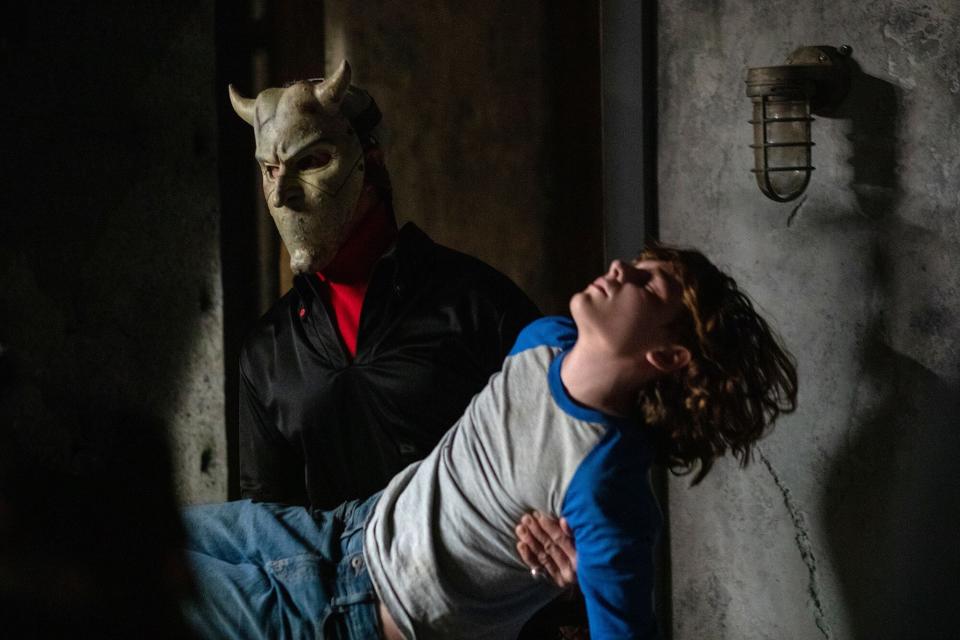
Fred Norris/Universal Ethan Hawke and Mason Thames in 'The Black Phone'
The call is coming from inside the house. The twist and the gist of The Black Phone is that those calls are actually good news for the boy trapped in a madman's basement — and maybe his best chance to survive director Scott Derrickson's blunt but brutally effective little slice of supernatural horror.
Phone relies on landlines and several other throwback tropes because it can: It's the early 1970s, and kids in stiff-denimed bell bottoms and stripey knitwear know only an analog world of shag-rug living rooms, suburban bike rides, and benign neglect. (Helicopter parenting, clearly, is a concept still several decades away.) Finney (Mason Thames) and Gwen (Madeleine McGraw) have more latitude than most, largely because their mother is dead and their dad (Justified's Jeremy Davies) is a dedicated low-grade alcoholic. There are also crushes and school bullies to content with, but the biggest bogeyman is someone their classmates just call "The Grabber"; Missing posters flutter on telephone poles and in shop windows for all the boys he's said to have stolen away.
Once Derrickson (Doctor Strange, Sinister) introduces his giggling villain (Ethan Hawke, daubed in chalky white stage paint like a degenerate mime) and gets Finney in the basement, more paranormal aspects begin to take over. (When the old disconnected phone on the wall rings, it's coming from a place no long-distance plan can reach.) But Hawke's mere malevolent presence is often the freakiest thing on screen: His nose and mouth concealed behind a series of leering, lumpen masks and his motives unclear, the actor swings between breezy benevolence and sputtering rage; there's a game he wants to play, except the rules aren't written anywhere.
Derrickson penned the script with his Doctor Strange cowriter C. Robert Cargill from a short story by Joe Hill, and the slim source material tends to feel padded out accordingly. Basic plot mechanics often don't add up in the details, but high-voltage jump scares abound, and several baroquely composed frames (a goat-horned Hawke stripped to the waist with a whip in his wand, waiting patiently in a kitchen chair; a scattering of black balloons across the sky) are genuine nightmare fodder. Thames, with his fox face and watchful eyes, feels more like a real kid than Hollywood usually allows, and even as goofier gaps begin to appear in the storyline, his MacGyver-like resourcefulness give the movie a witty, furious kick: Home Alone for the Blumhouse crowd. Grade: B —Leah Greenblatt
Read our full review of The Black Phone here.
The One That Got Away
All 10 episodes streaming now (Amazon Prime Video)
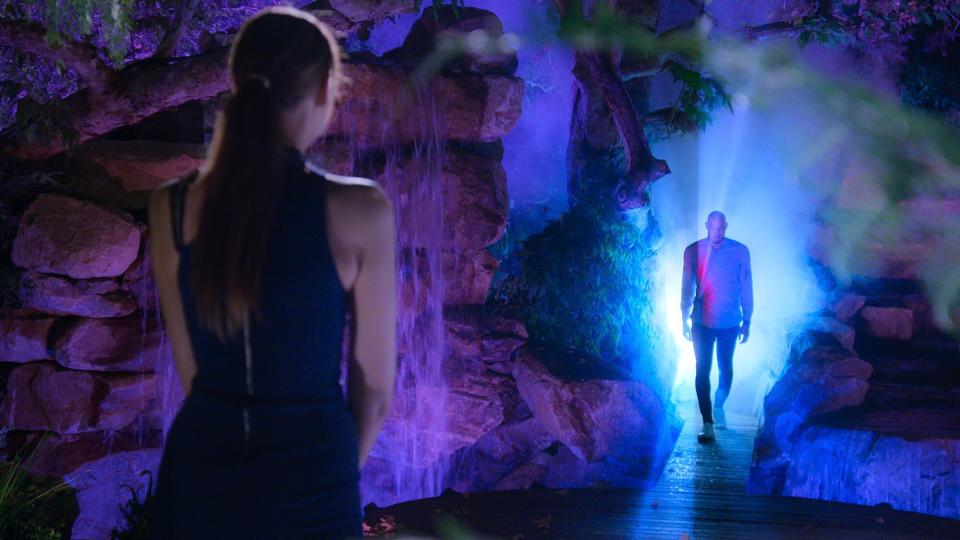
Amazon Prime Allyssa waits for a new suitor at the Portal on 'The One That Got Away'
An absurd gimmick can only carry a bad dating show so far (RIP, Conveyor Belt of Love), but a good gimmick can elevate an okay reality show into a worthwhile afternoon binge.
In Amazon's The One That Got Away, six contestants convene at a Malibu ranch where they'll have a chance to explore some romantic do-overs. The silliness comes in the form of the "Portal," through which people from their past — exes, missed connections, friends they always had a crush on but the timing was never right, etc. — emerge at regular intervals.
Everyone treats the Portal with straight-faced reverence, even though it looks like a leftover rock-formation set from Land of the Lost, and it's never not funny to hear host Betty Who tell contestants, "Meet me at the Portal." She says it a lot, because producers (including Elan Gale of The Bachelor and FBoy Island fame) are quick to send new singles in every time one of the contestants — including a Twitch streamer, a lawyer, a gay travel blogger, a CAT-scan technologist, a real estate manager, and a model — starts hitting it off with someone from their past.
The Portal seems to have the most fun trolling Allyssa, a high-maintenance 25-year-old. It keeps sending in men who are not up to her exacting specifications, so the model decides to play by her own rules — which is bad news for the other contestants, but good news for viewers who like petty drama. Fortunately, Betty Who is there to keep the peace with her soothing Aussie spirit and genuine concern for all the lovelorn fools under her charge. Go ahead and meet her at the Portal. It's not the dumbest reality TV locale you'll ever visit. Grade: B– —Kristen Baldwin
Marcel the Shell With Shoes On
In theaters now
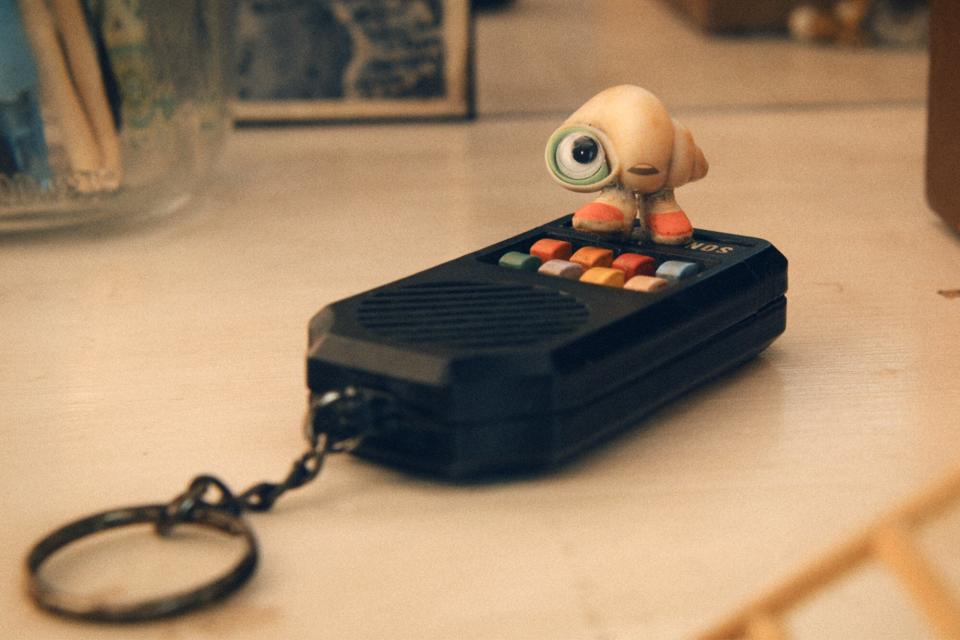
A24
Could it be that what the world needs now more than anything is a tiny one-eyed mollusk who speaks of raspberries and philosophy? First birthed in a series of YouTube sketches created by actress Jenny Slate and her former partner Dean Fleischer Camp, Marcel the Shell returns nearly a decade later to the big screen, his unfiltered thoughts, helium-squeak patter, and odd little body — the color and shape, approximately, of a malformed toenail — set delightfully free in this absurdly charming mockumentary.
Once part of a thriving shell community, Marcel has lost his compatriots in a fateful sock-drawer separation incident, leaving only his kindly but ailing grandmother (voiced with a rich Continental rumble by Isabella Rossellini) behind. Camp, as the man behind the camera, is a DIY filmmaker seeking to capture Marcel in all his ordinary daily meanderings: rolling around in a tennis ball, nibbling on popcorn kernels the size of his face, riding "party hairs" — they're probably pubes — like surfboards down the porcelain slope of a bathtub.
When the resulting clips go unexpectedly viral, Marcel sees a chance to parlay all that influencer caché and be reunited with his chosen family. His sudden fame also opens the doors for cameos ranging from Lesley Stahl (Marcel and his grandma are massive 60 Minutes fans) to Conan O'Brien, but the beating heart of the film remains its diminutive star, whom Slate winningly embodies as both a guileless naif and a sort of ruthless truth-guru. (Dan's relationship status is cause for radical honesty more than once). At just under 90 minutes, the movie is as short and sweet as its stamp-size muse, but an uncommon loveliness lingers; Marcel might just be the most purely joyful, stealthily profound movie experience of the year. Grade: A– —LG
Sign up for Entertainment Weekly's free daily newsletter to get breaking TV news, exclusive first looks, recaps, reviews, interviews with your favorite stars, and more.
Related content:

